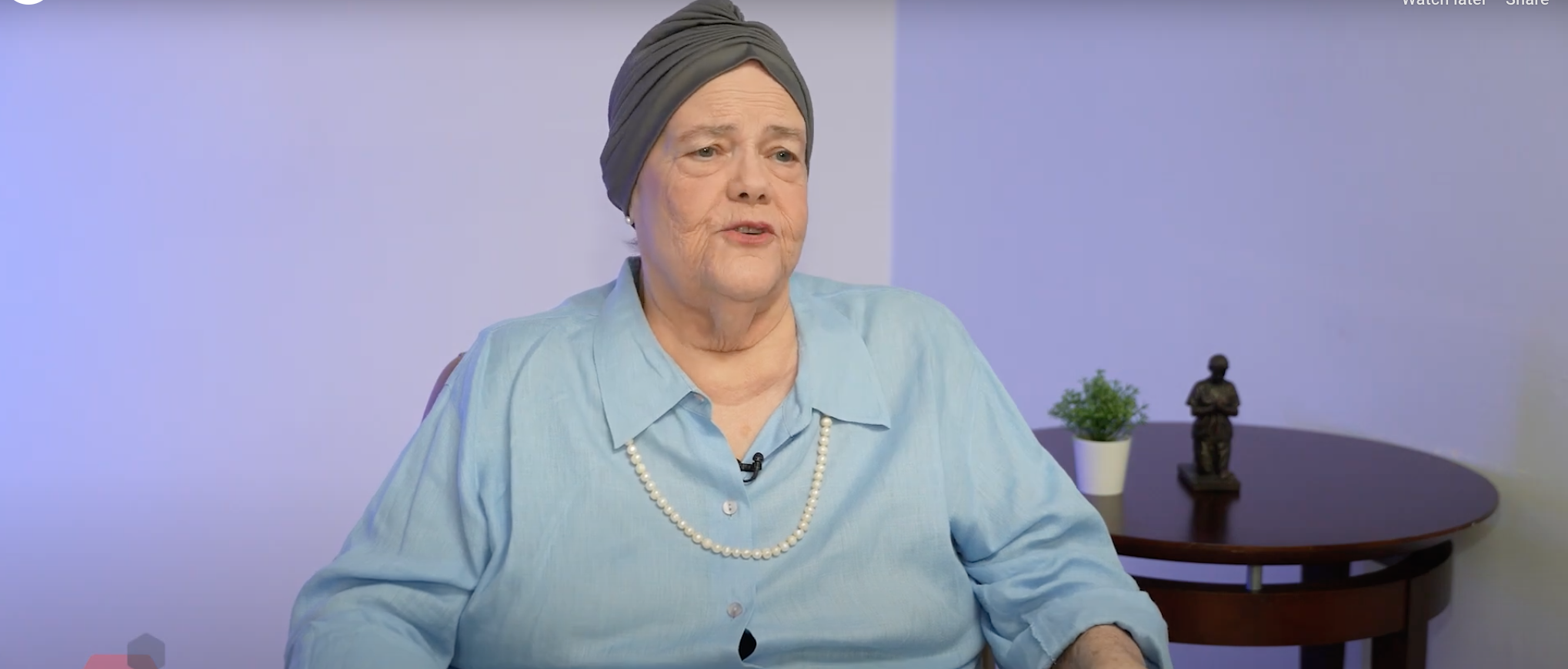Clinical Trial Offers Life Expectancy to Woman with Lymphatic Cancer

María Corral did not let herself be defeated by the news she received after having been in remission from lymphatic cancer for six months. The non-Hodgkin lymphoma had returned and, this time, stronger.
[Video is in Spanish.]
“It was an aggressive lymphoma. This hit me like a bucket of cold water, but I had to control myself and do everything possible to continue living,” says María, 77-years-old.
The news of the cancer recurrence was accompanied by more encouraging news: an invitation from Sylvester Comprehensive Cancer Center, part of the University of Miami Heath System (UHealth), to participate in a clinical trial with a new CAR-T therapy, or CAR-T therapy. T cells with CAR receptor.
“They saw that there was a lot of hope of helping me again with this new study,” she says. “The other alternative was horrible, so I agreed to participate and my family supported me.”
Antonio M. Jiménez, M.D., a Sylvester cell therapy expert, explains that CAR-T is a new form of immunotherapy that is indicated in certain types of high-risk leukemias, lymphomas and myelomas. “CAR-T is transforming the way we treat patients who had no other viable treatment options,” says Dr. Jiménez
Current immunotherapies are born from the idea that a patient’s immune system could be harnessed to fight cancer.
Immunotherapies are considered the great advance of recent years.
According to Dr. Jiménez, this immunotherapy allows you to eliminate cancer cells in a more specific and much more efficient way than traditional chemotherapy.
Given that some tumors have the ability to evade attacks by the immune system through various mechanisms, immunotherapies were developed to strengthen the patient’s immune system with certain substances produced by the body or in a laboratory, so that it acts better against the tumor. cancer.
In the case of CAR-T, T lymphocytes, which are a type of white blood cell and are part of the immune system, are removed from the patient to be modified in the laboratory. T lymphocytes are key in fighting infections in the body and fighting cancer.
Through a process of genetic engineering, T cells are fitted with a new receptor called chimeric antigen receptor (CAR). This receptor is designed so that T cells attach to a specific antigen on the surface of cancer cells and help the altered cells better recognize and attack cancer cells.
CAR-T cells are transferred to the patient through an infusion into a vein.
Maria went into remission immediately after the CAR-T infusion. “I had my first PET (positron emission tomography) scan after the transplant and the lymphoma had disappeared,” says María.
According to Dr. Jiménez, the results obtained with the therapy have been extraordinary.
“Until today, the levels of remission and the levels of survival without relapse have been quite surprising in patients who had no other alternative; Many of them have managed to advance to other more definitive treatments such as a bone marrow transplant, which will allow them to achieve a cure,” says Dr. Jiménez.
Sylvester was part of the two clinical trials, Zuma-1 and Zuma-5, that led to the approval of the first CAR-T therapy by the Food and Drug Administration (FDA) in 2017. “We are proud to have been able to collaborate to achieve its approval and help make this therapy available at Sylvester and in many centers in the United States,” says Dr. Jiménez. “It is very gratifying to see, today, that patients who received therapies in the initial studies continue in remission.”
Sylvester currently has several CAR-T therapy modalities available, including those in clinical studies and not commercially available, as well as those that are commercially available.
Eight months after her treatment, today María is still in remission and grateful for the opportunity in life that her participation in the clinical trial gave her. “I hope that with this message I can help other people make that decision. If it is going to give them life, whether it be months or years, or a cure, they should not hesitate to participate in a clinical trial. It is important to be well informed,” concludes María.
Written and produced by Shirley Ravachi.
Tags: Cell Therapy, Dr. Antonio Jimenez, Hematological Neoplasms, Non-Hodgkin Lymphoma
